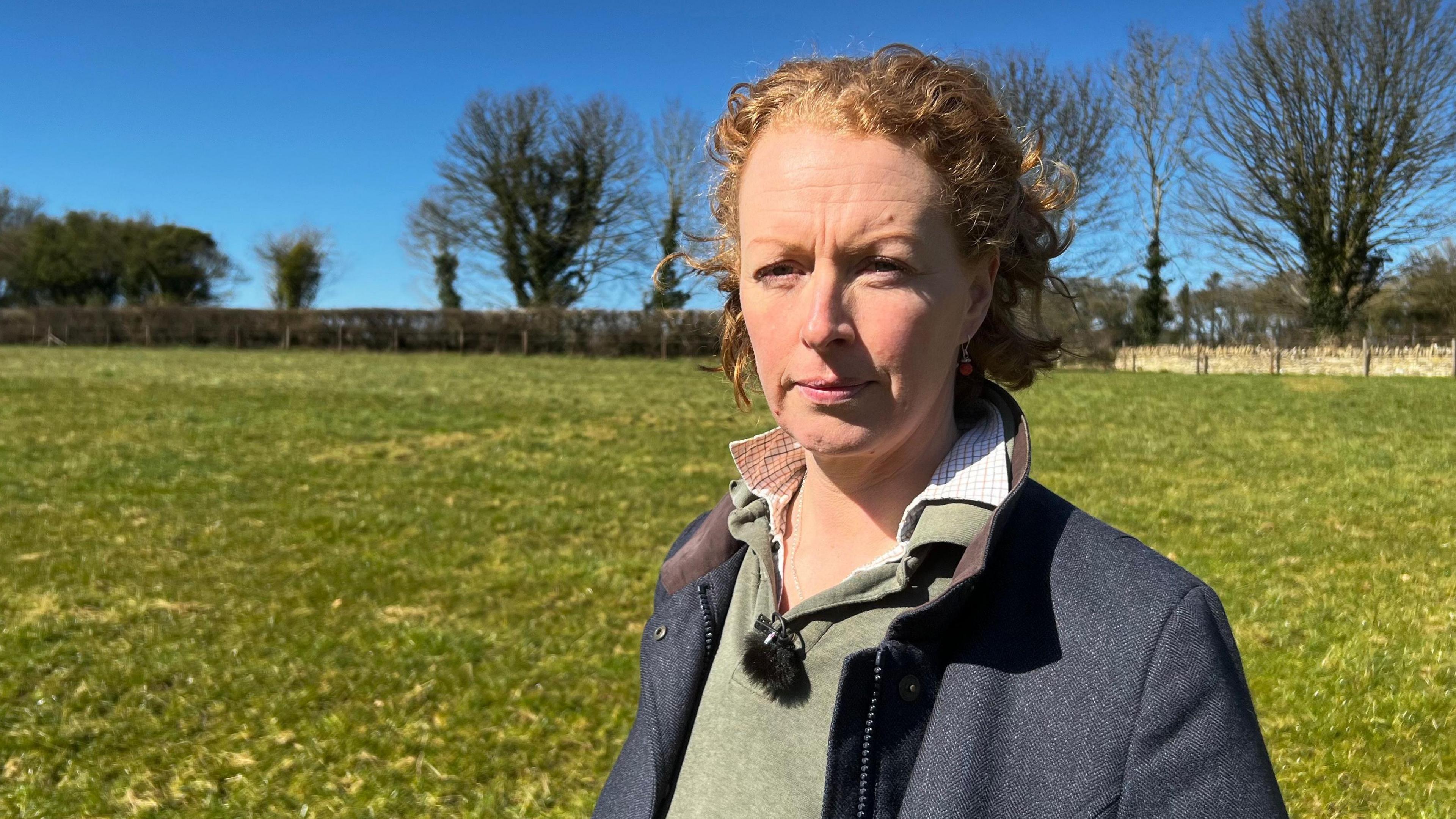'We make more money from weddings now than farming'
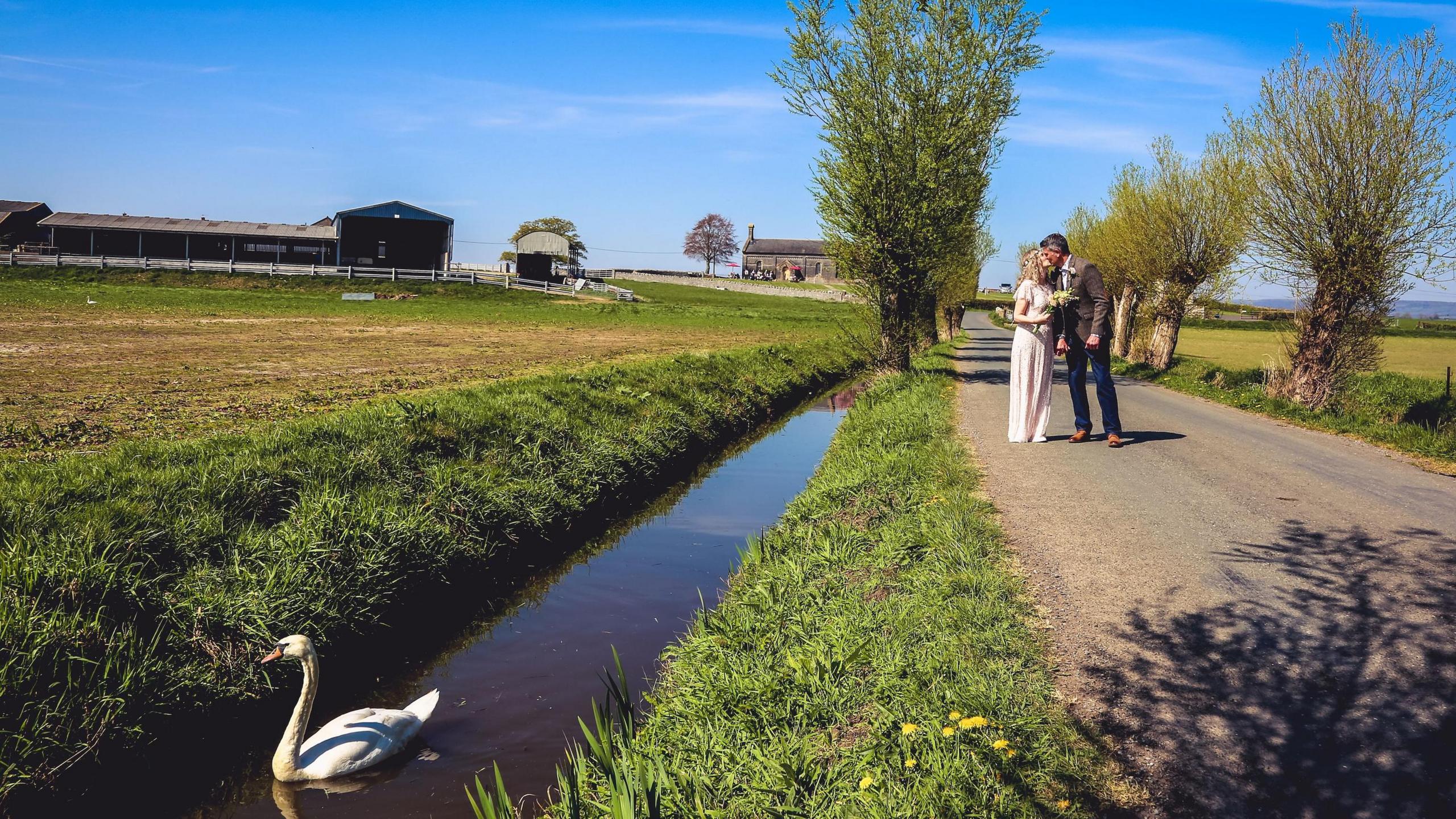
Godney Farm in Somerset has its own church and hosts dozens of weddings every year
- Published
Farmers have faced a difficult year, with the longest wet winter since records began followed by the driest spring on record.
Meanwhile, the Labour government's decision to start levying inheritance taxes on farms has sparked protests across the country and further outrage has followed with ministers' sudden closure of the popular grants for sustainable farming practices.
Three quarters of farmers now rely on non-farming enterprises to supplement their food production. From falconry and helicopter rides to spas and solar farms, farmers say these additional services now form a crucial part of the business.
I spoke to some about what they are doing to keep their family businesses afloat.
'Atrocious income'
Mike Churches, a sixth-generation farmer near Glastonbury, Somerset, said the "atrocious" income from farming had prompted him to diversify.
He now makes substantially more money from weddings and events than from raising sheep and cattle.
He said: "It's about 30% from farming now, 70% from weddings, falconry, helicopter rides, glamping, you name it."
Tom Collins, Wiltshire chairman of the National Farmers' Union (NFU), said these extra enterprises were essential.
"It's no longer just a bolt-on, it's a crucial part of the business," he said.
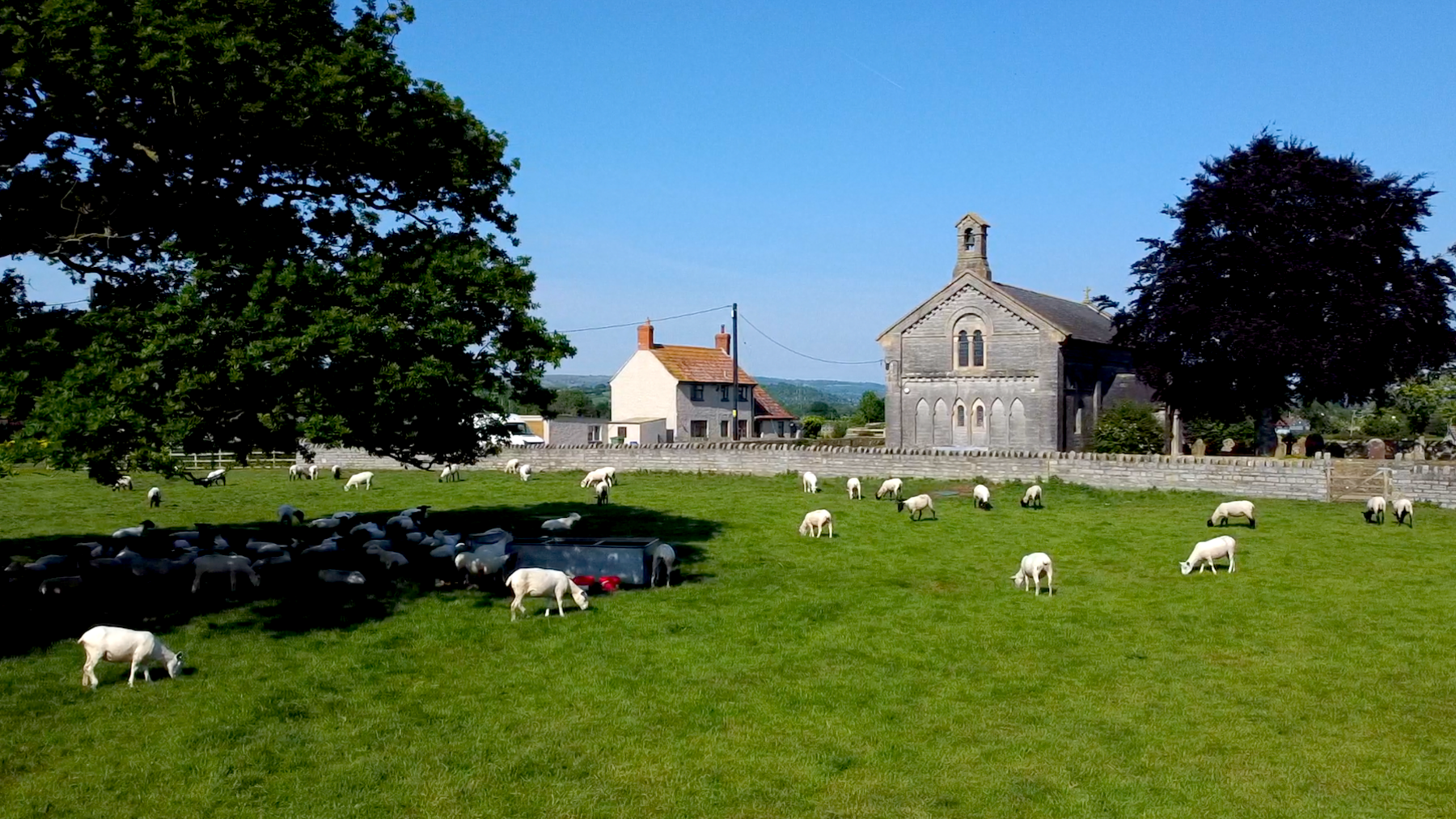
The farm near Glastonbury has raised sheep for decades, but buying the church has brought financial security
Many farms have started offering weddings, but few can boast their own on-site church.
A few miles down the road from Glastonbury, the small village of Godney had a church, built next to Godney Farm.
As the population of the village fell, it was deconsecrated, so Mr Churches and his wife Jenny decided to buy the building.
"Yes, plenty of people tell us we have the right name," chuckled Mr Churches.
They spent a lot of money restoring the old building, and applied for a licence to hold civil ceremonies.
Meanwhile, like many farmers, they watched their income from the farm's sheep, cattle and haymaking steadily fall.
Mr Churches told me his return on investment from farming is "about 2 or 3%, which is nonsensical for the hours that you're doing".
He said he could get 10 times as much from weddings, "so it is a far more lucrative business to be in".
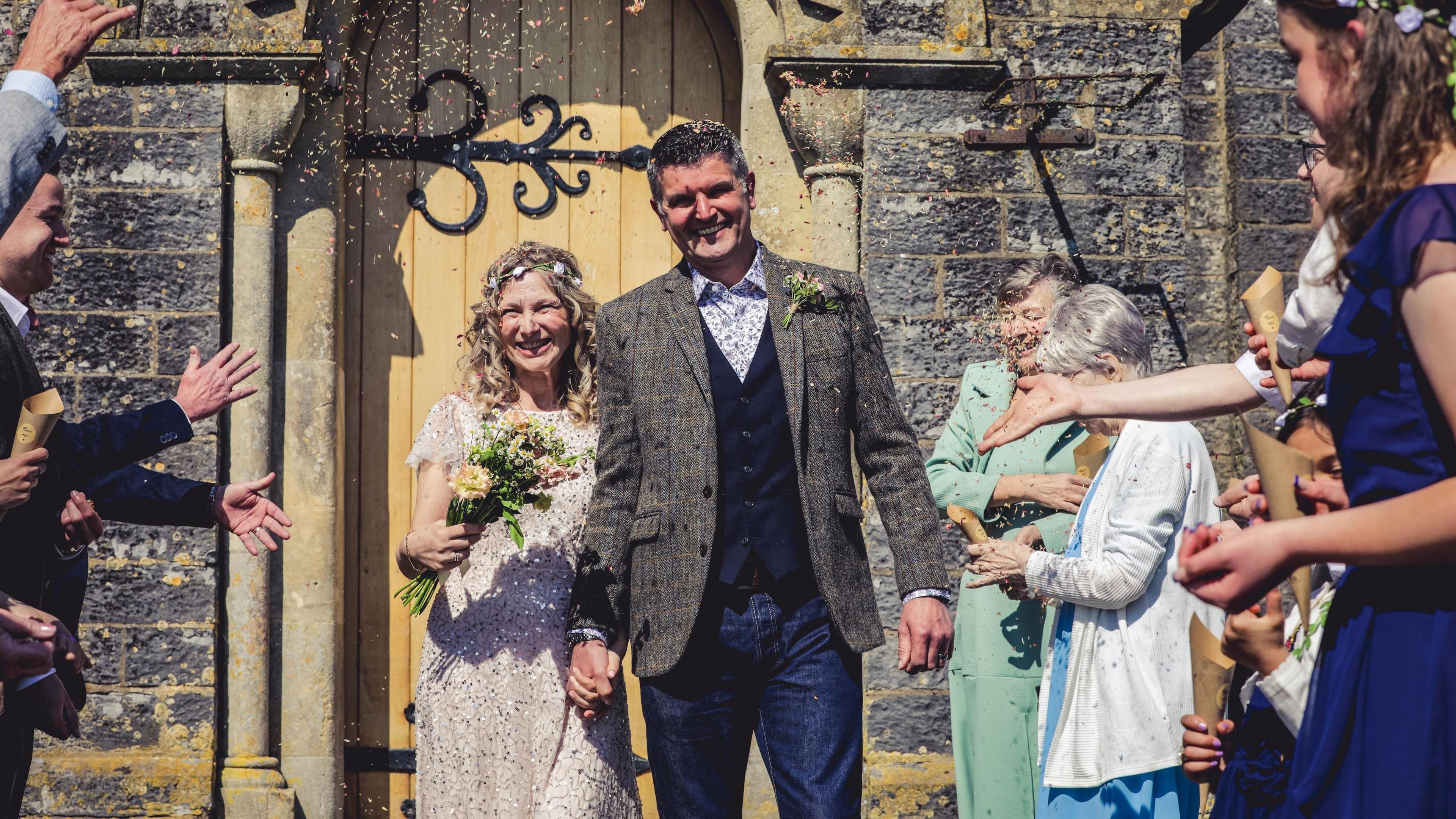
Paul and Michelle Chorley "loved the outdoorsy feel" of a farm wedding
Last year, 34 couples tied the knot at Godney Farm, including Paul and Michelle Chorley, from Street in Somerset.
Mr Chorley explained the appeal: "We're quite outdoorsy people, so we wanted something that would give us that country feel.
"When we turned up and you see the view out the front, that is exactly what we'd imagined."
Mrs Chorley added: "It was really relaxed, the children were running about, the dogs were running about, the sheep and the cows were around, it was just what we wanted."
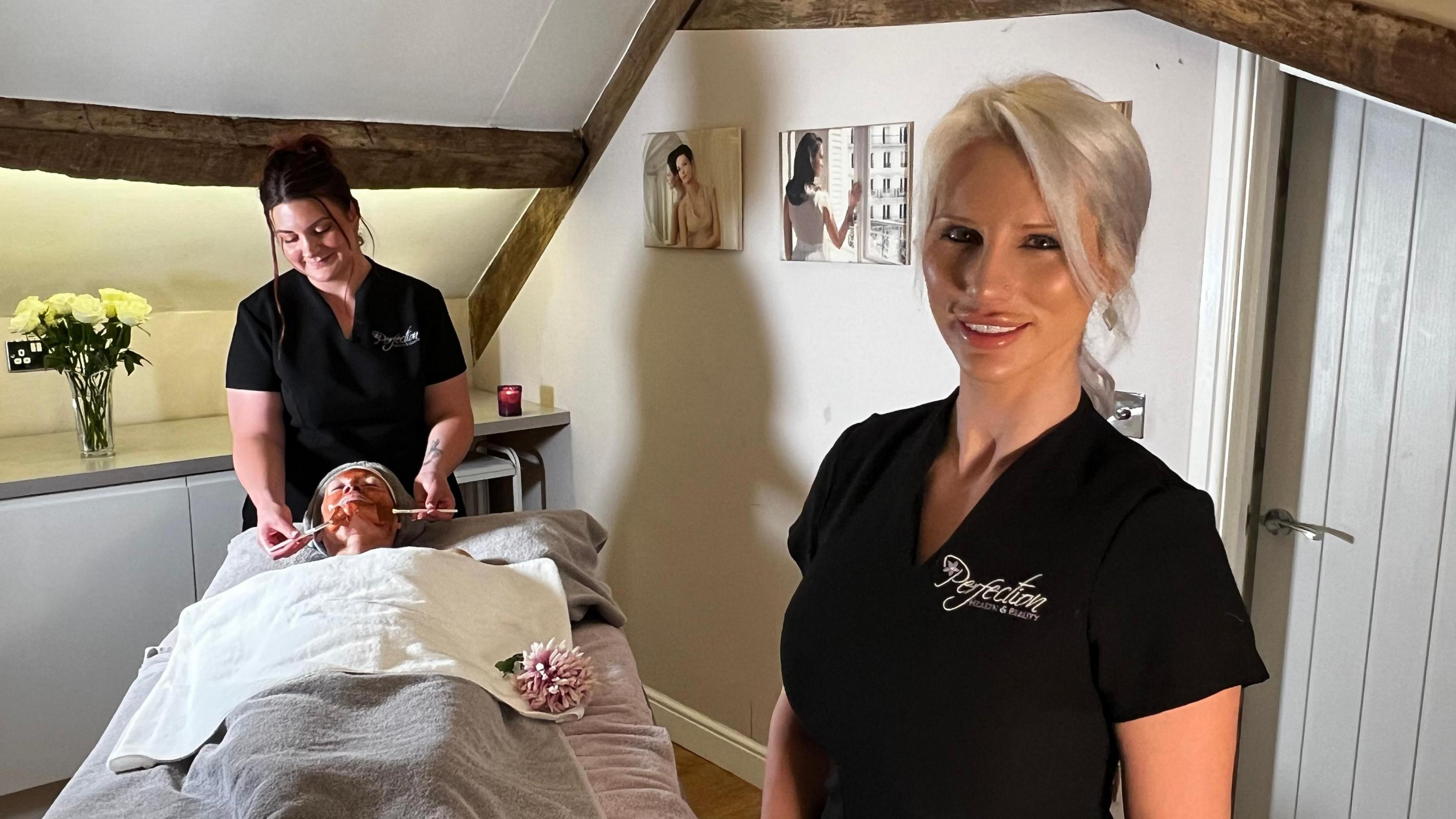
Michelle Stead runs a beauty salon from a traditionally mucky Wiltshire farm
The Churches are obviously unusual in having their own actual church, but earning more from non-farming business is not that rare.
Research for the UK government, external found a quarter of farms, 26%, earned more than half their income from diversified enterprises.
In the heart of north Wiltshire, I bump down another farm track, past a pond and a field of a dozen young brown calves.
In the yard there are tractors and hay bales, dogs running around.
An unusual setting, you might think, for an immaculate beauty salon.
But Michelle Stead thinks it sets the "perfect tone for any aesthetic beauty or wellbeing treatment".
Beauty and the beasts
Mrs Stead set up her beauty clinic, called Perfection, more than 10 years ago.
Vigorous social media marketing brings clients from Malmesbury, Cirencester and the villages around.
"You can't help fall in love with the location," she smiles.
I asked if being utterly off any beaten tracks has been a problem.
"Why wouldn't you come here?" she replied.
"There's no parking issues, no traffic jams, no pollution, it's beautiful.
"It literally sets the scene - and that's what makes us different."
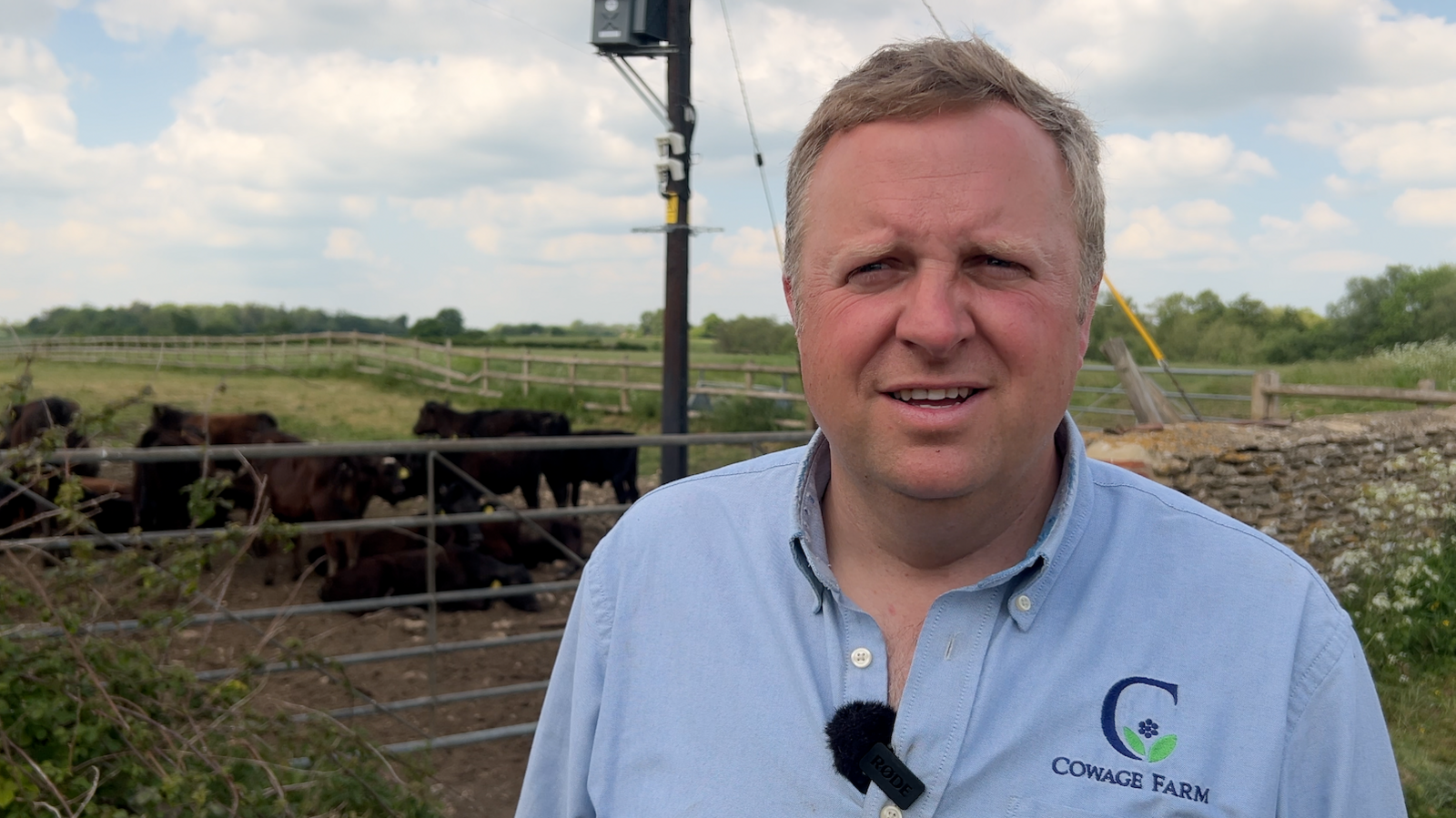
"Without diversification we would all be struggling", said Wiltshire farmer Tom Collins
Her landlord is Tom Collins or 'Farmer Tom' as she calls him.
He runs a traditional mixed farm, with cattle and pigs, alongside fields growing wheat, barley, peas and beans.
But his old Cotswold farm buildings are now too small for modern farming, and he has let them out to Mrs Stead and several other small firms.
"Without diversification we'd really be struggling. I don't know a single farm business that isn't diversified," he said.
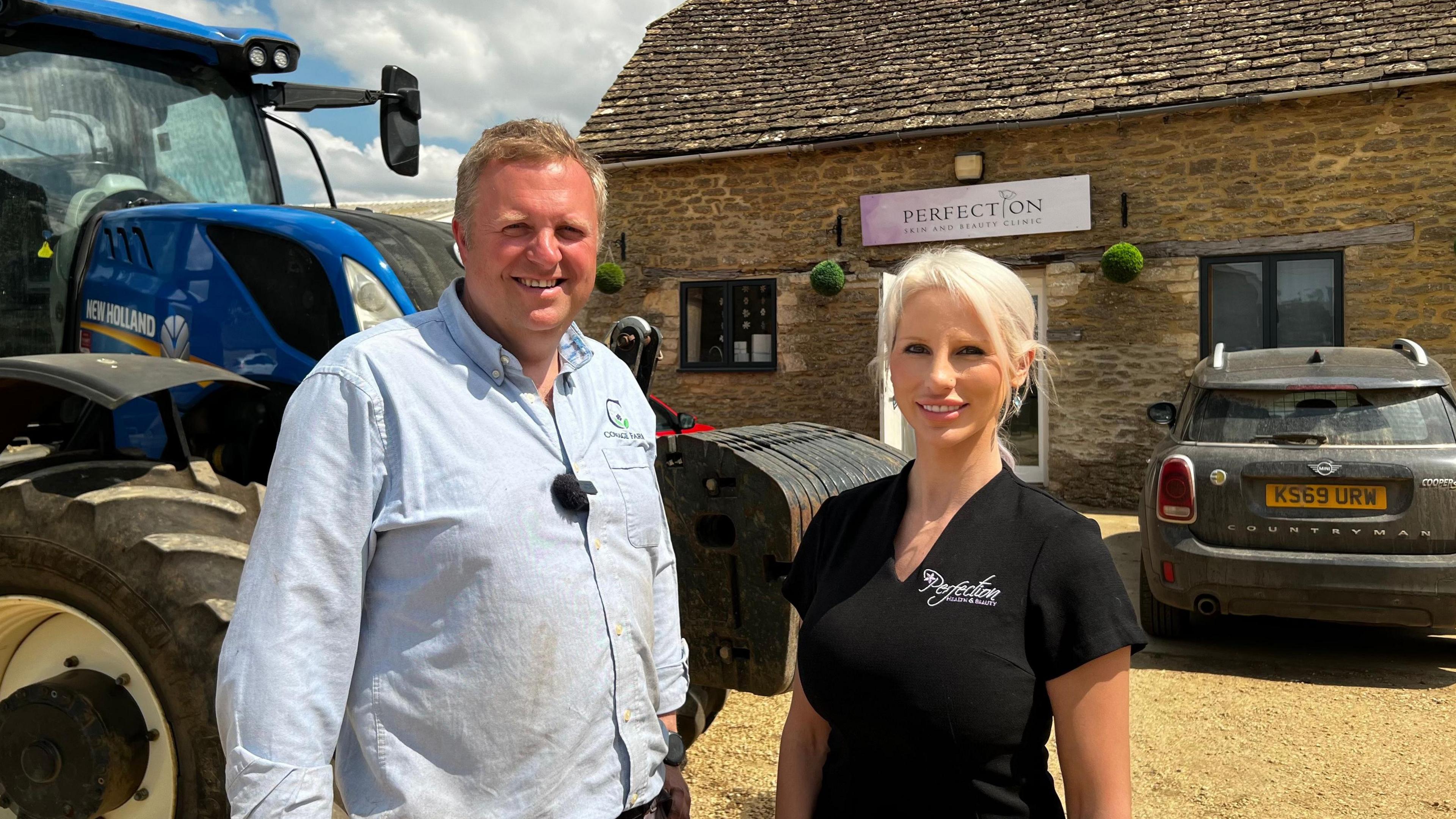
Tom Collins and Michelle Stead, who runs her salon on his farm
Nearly three quarters of farmers (71%) now rely on some additional business, according to the government research, and this has risen from 61% since 2015.
So what do most farmers turn to?
The report for the Department of Environment, Food and Rural Affairs (DEFRA) analysed farm incomes.
Letting out buildings was the most common, followed by farm shops and B&Bs, camping and glamping sites.
Spas, wellness clinics, sports and health retreats also feature.
A new, more controversial, source of income is letting out fields to solar power companies.
The report laid bare how much farmers rely on these new income streams.
More than one in four, 28%, reported income from actual farming was negative.
In other words, they lost money growing food.
While Mr Collins salutes the enterprise farmers have shown, he says it is only happening because producing food is such an unreliable business.
He said: "The finances aren't good, the margins are wafer thin. It's a lot of sawing for not much sawdust, as my grandfather used to say."
Ministers insist their support for farmers is "steadfast".
A spokesperson for DEFRA said: "This government is investing £5bn into farming, the largest budget for sustainable food production in our country's history."
Get in touch
Tell us which stories we should cover in Somerset
Follow BBC Somerset on Facebook, external and X, external. Send your story ideas to us on email or via WhatsApp on 0800 313 4630.
Related topics
- Published11 April 2024
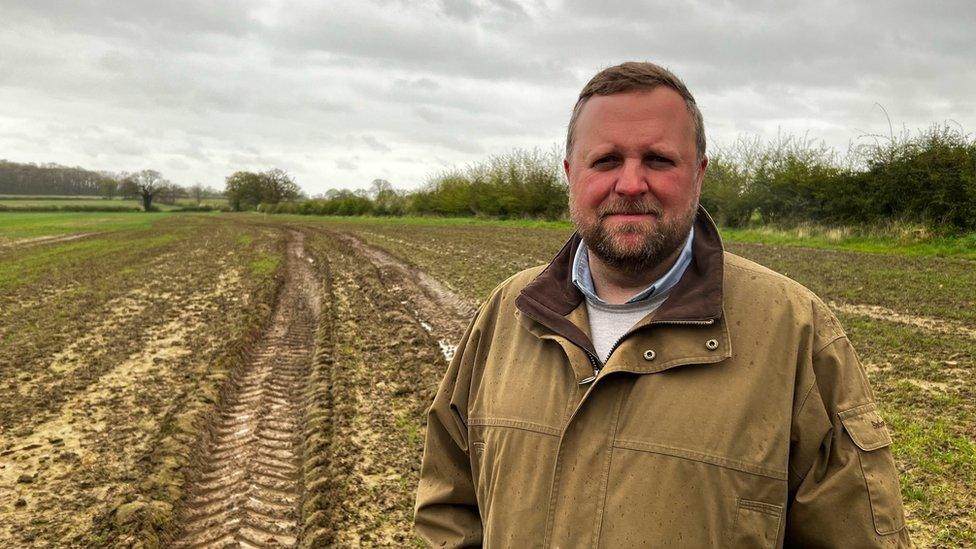
- Published24 March
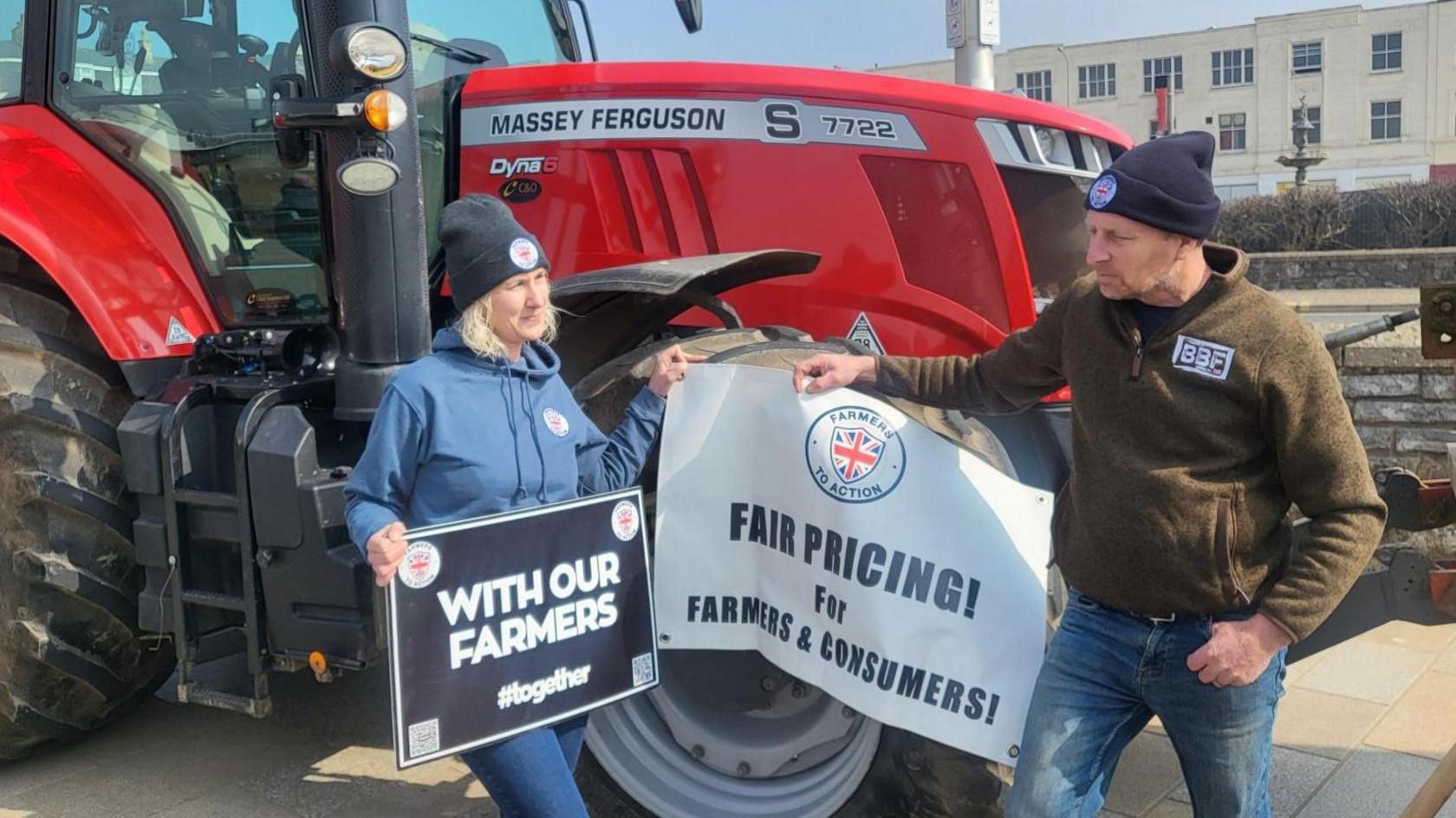
- Published27 March
